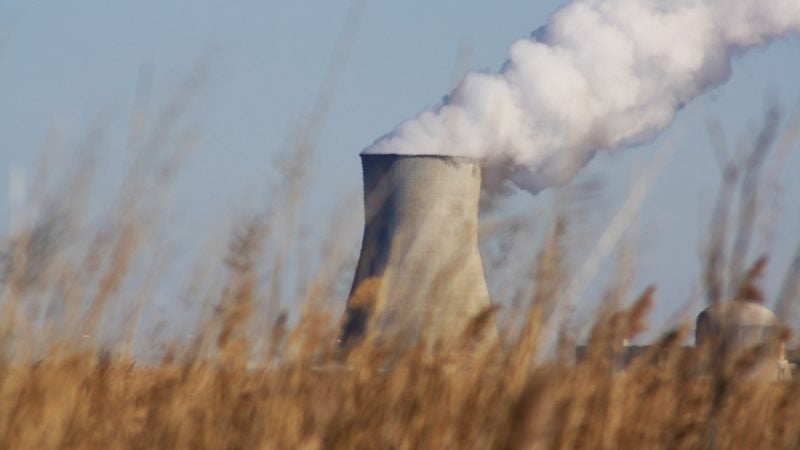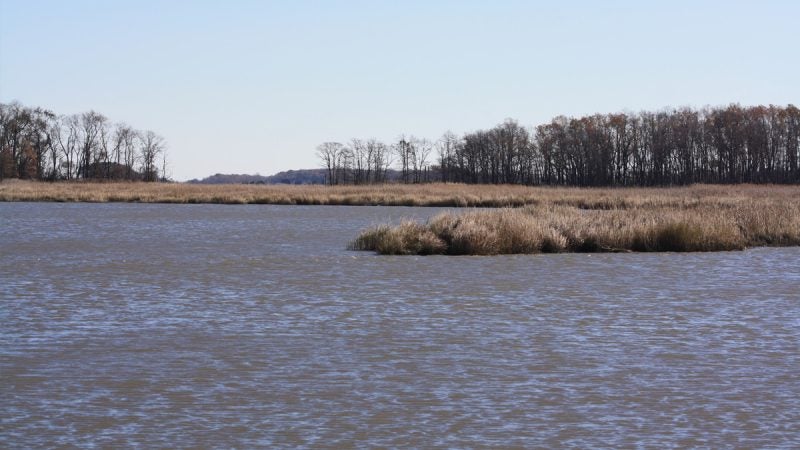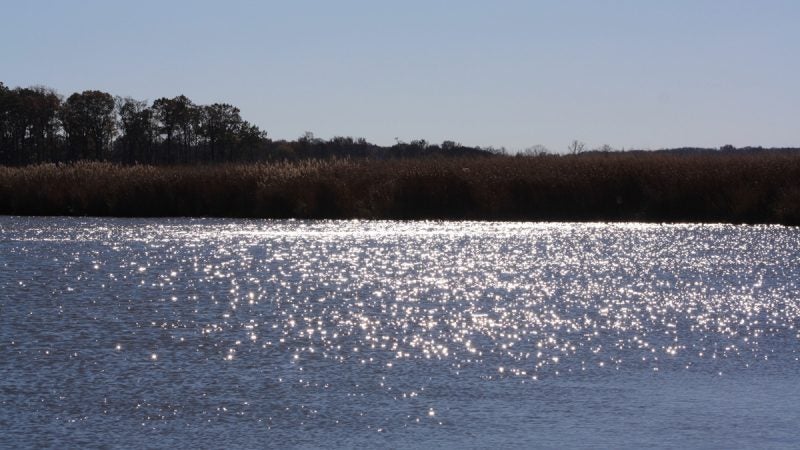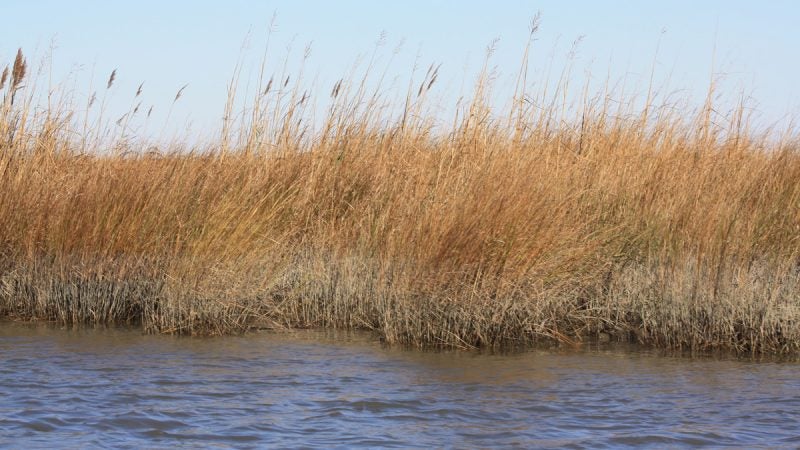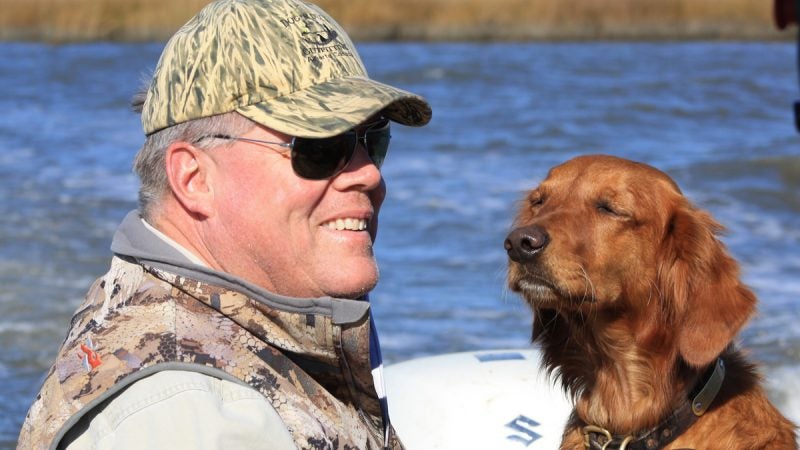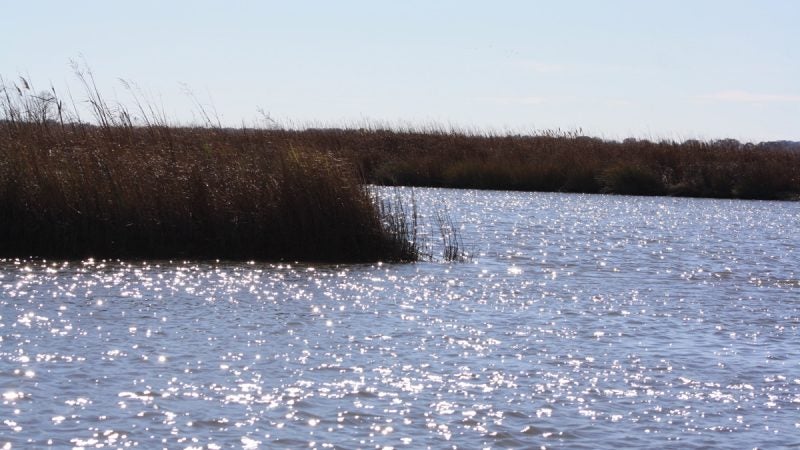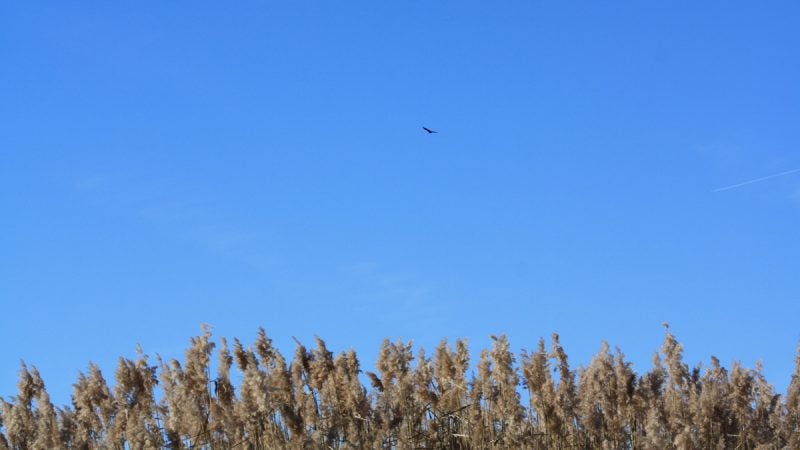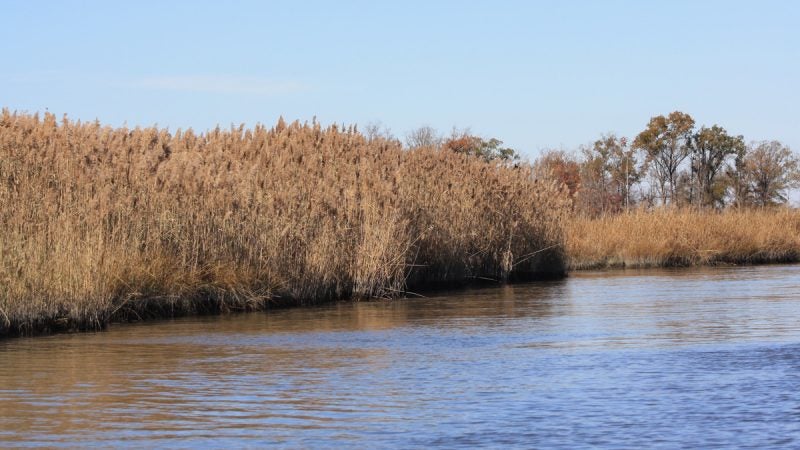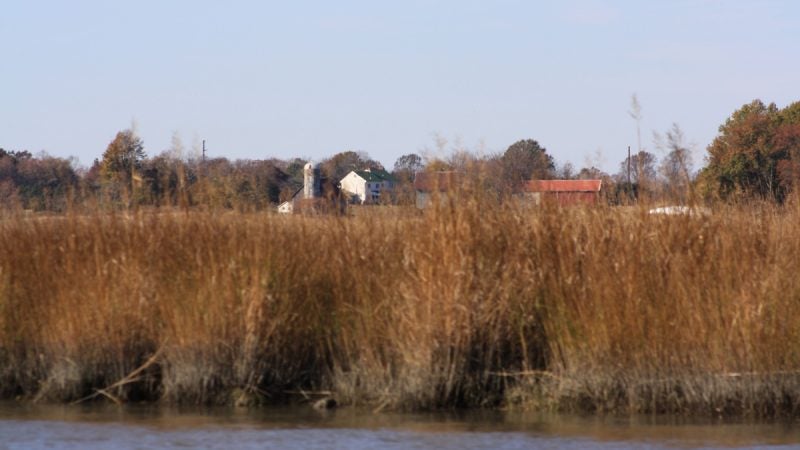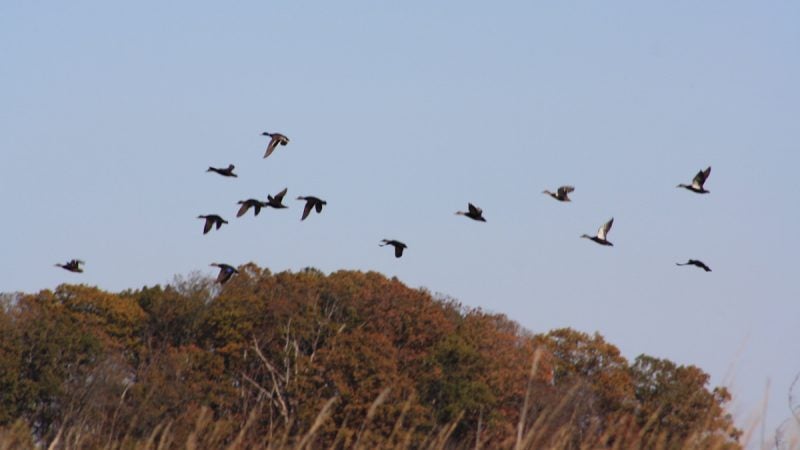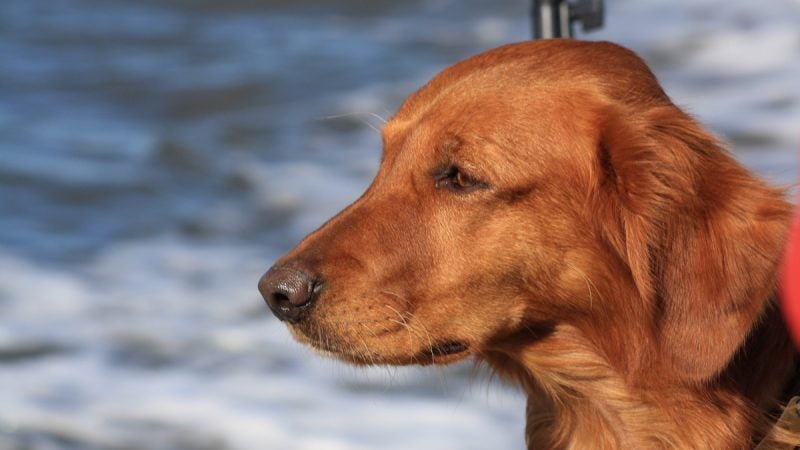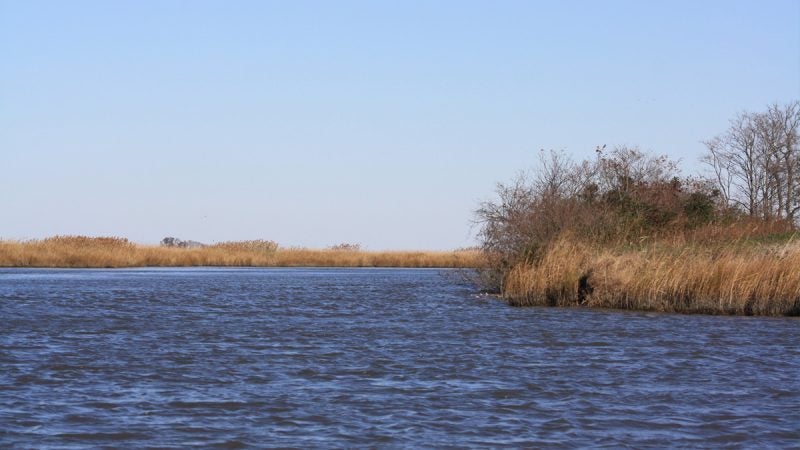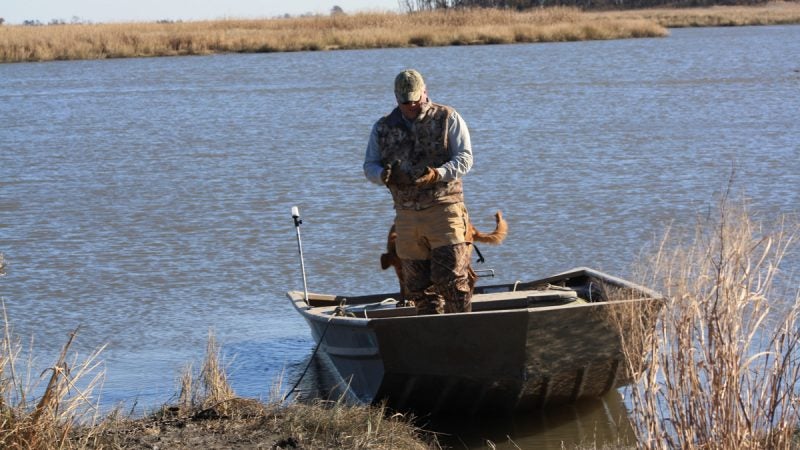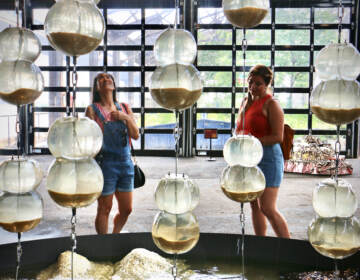Decades after fight to stop refinery, Delaware Wild Lands protects more than 30,000 acres
In the late '60s, Shell Oil wanted to build a refinery in Delaware. That started a fight to preserve Delaware’s land.
In the late 1960s, Shell Oil wanted to build a refinery in Delaware. That began a fight to preserve Delaware’s land that, to date. has protected more than 30,000 acres.
It was a rather sunny day in mid-November — chilly and a bit windy — as my cameraman and I drove along the gravel driveway leading to Roberts Farm in Townsend, Delaware. The land is part of a recent acquisition by Delaware Wild Lands, a nonprofit land trust. We met Kate Hackett, director of Delaware Wild Lands, and headed out on a boat tour of Blackbird Creek.
Delaware Wild Lands has been in operation since 1961, making it the oldest land trust operating in the state.
The nonprofit group protects land throughout Delaware’s three counties. “We want to restore it for wildlife habitat, reforest it for bird life, for waterfowl,” Hackett said. Delaware Wild Lands works to maintain and, in some cases, restore the land to its original condition.
The Blackbird Creek we toured is on the land of the Roberts Farm. The land used to be four different farms that were consolidated within the Roberts family over the years. It’s a very important piece of a very large puzzle for Delaware Wild Lands. “This is one of the key linchpins to connecting 10,000 acres of protected space in southern New Castle County,” Hackett said.
Hackett called the watershed “one of the most pristine places remaining in the state of Delaware.”
The creek still flows in its natural undulating form, making this a special place. How this stretch of water was spared the fate of so many others — namely being straightened to convey water away from the land — is an interesting story.
Waterways were straightened throughout the state to promote agricultural production, Hackett said.
When agriculture was a statewide endeavor, the farms made more money with trapping animals than growing foods for the families who owned the farms. “There is fantastic muskrat trapping here, and so that’s really why the marsh remained so pristine,” Hackett said. So the Blackbird Creek and surrounding marshland were never drained because people didn’t want to disrupt the muskrat habitat.
That habitat and much more were almost severely, irreparably disturbed back in the 1960s when Shell Oil decided that the surrounding land would be a great spot for a refinery.
Ted Harvey, the founder of Delaware Wild Lands, didn’t like the idea of losing so much of Delaware’s natural spaces. He began to purchase a patchwork of land, just enough to foil Shell’s plans, so it couldn’t amass the land needed to build the refinery.
Harvey won, and Delaware Wild Lands was born. He went on to work with Gov. Russell Peterson on the Coastal Zone Act. The vote on the Coastal Zone Act, according to Hackett, “was very, very, contentious and passed only by one vote in the state legislature.” Right before the vote, President Richard Nixon called Harvey, trying to get him to stop the passage of the bill.
Years later, Delaware Wild Lands went back and bought the land back from Shell.
“And now we have 10,000 acres of contiguous land,” Hackett said.
“The state of Delaware has done a phenomenal job of protecting land, Delaware Wild Lands and the Coastal Zone Act both occurred before [the] EPA was even founded.”
One of Delaware Wild Lands’ goals, Hackett said, was to “help people understand what makes Delaware a special place.”
As we traveled along the creek, we could certainly attest to that. Aside from the boat’s outboard motor, it was quiet, peaceful and natural. The only things I saw in the sky were waterfowl and maybe a hawk.
It’s an experience that many people may not be used to, but they should try. Kids, especially, have a hard time adapting, according to Hackett.
“Kids and people now are just not used to being in open spaces, and they’re not used to hearing nothing,” she said. “It’s almost scary for them to not hear auto traffic, horns, planes.”
There is hope however; she says, that they will get used to that nothingness. “Kind of reintroducing nature to people again.”
Delaware Wild Lands continue to increase the land under its stewardship. It just announced the donation of 160 acres in Sussex County, expanding the conservation efforts of the Great Cypress Swamp, Delmarva Peninsula’s largest forest and largest freshwater wetland.
“We’re providing habitat that will carry those species into the future forever, but also connecting people back to the land so they can appreciate it,” Hackett said.
WHYY is your source for fact-based, in-depth journalism and information. As a nonprofit organization, we rely on financial support from readers like you. Please give today.



